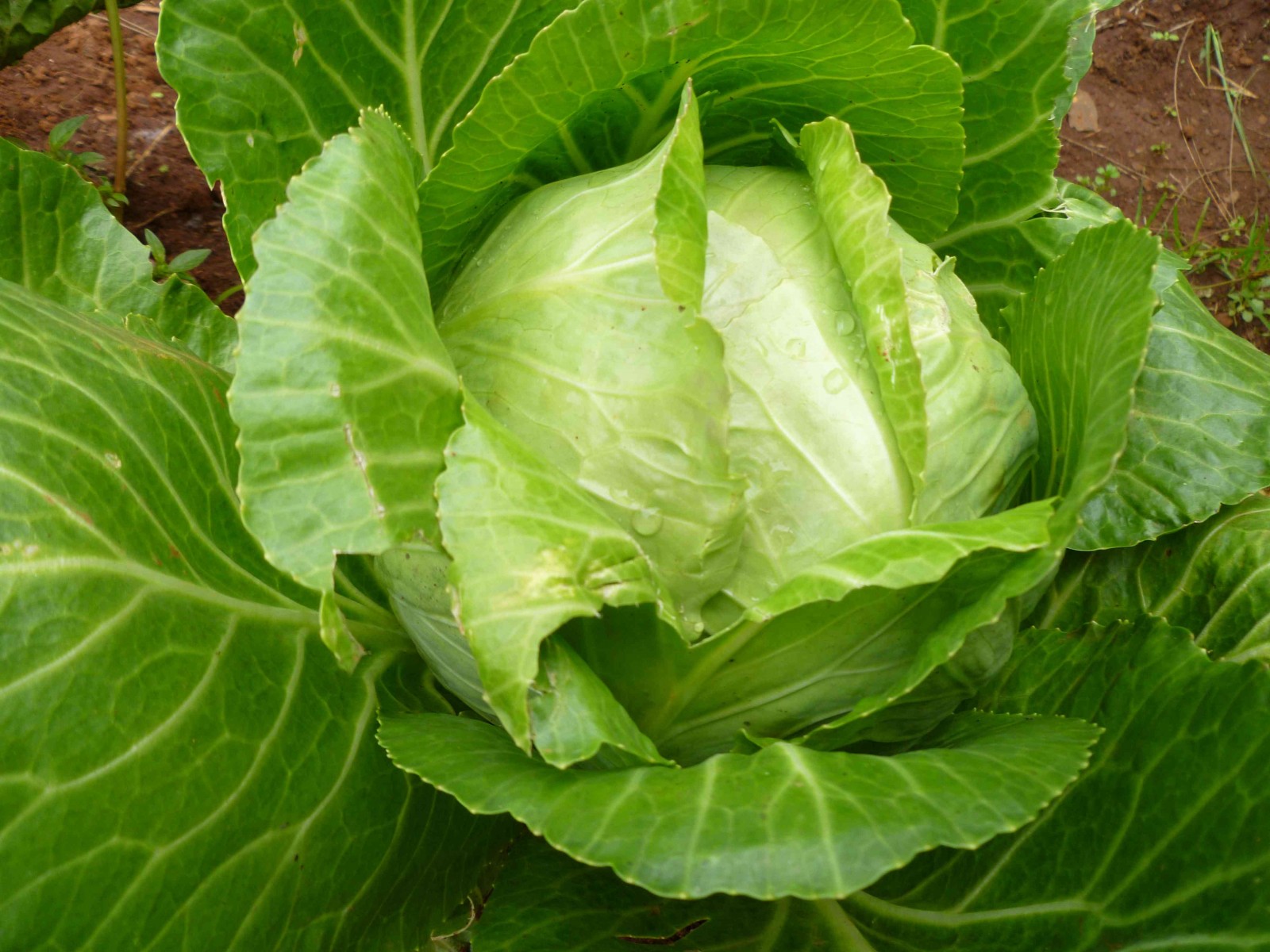Cabbage (Brassica oleracea) is a vegetable that belongs to the Brassica or cruciferous family, which also includes broccoli, kale, cauliflower and brussels sprouts. This vegetable can grow in any types of soil but grows especially well in fertile soils – the more fertile the soil, the faster the cabbage grows.
Cabbage is one of the oldest vegetable plants and is believed to be originated in Asia and the Mediterranean. Today, cabbage is probably one of the most widely cultivated plants worldwide in both tropical and semitropical regions.
There are approximately 400 varieties of cabbage throughout the world varying in shape (from round to conical), size (from four to eight inches) and color (green, white, red, and purple leaves). The most common is the round, light green variety.
Cabbage is an economical and versatile vegetable that is easy to find in any supermarket and it gives you a huge nutritional value. This vegetable can be eaten cooked or raw, but it often added to soups or stews. In Germany, cabbage is pickle in vinegar and served as Sauerkraut.
Apart from being used in variety of dishes, Cabbage is also provides many health benefits. In fact, cabbage is rich in various phytonutrients and vitamins like vitamin A, C & K. These all are natural antioxidants, which help prevent cancer and heart disease inducing free radicals.

Cabbage is also a good source of dietary fiber, providing nearly 15 percent of daily recommended dietary intake. Fiber is very important for ensuring the body’s digestive system is functioning at optimum level. Some positive health benefits of cabbage are as given below:
- Prevent cancer growth
Cabbage contains several cancer fighting properties, including lupeol, sinigrin, diindolylmethane (DIM), indole-3-carbinol (I3C), and sulforaphane, which may help trigger enzyme defenses and inhibit tumor growth. The I3C and sulforaphane compounds in cabbage have both been shown increase the anti-cancer effects of the chemotherapy drug Taxol. One study of Chinese women found that consumption of cruciferous vegetables (such as cabbage, broccoli, cauliflower and Brussels sprouts) was associated with a significant reduced breast cancer risk. - Treat peptic ulcers
Cabbage is one of the best natural remedies for stomach ulcers (called peptic ulcers). A study at the Stanford University School of Medicine found that fresh cabbage juice is very effective in treating peptic ulcers. The anti-ulcer properties of cabbage are due to the high glutamine content in it. - Anti-inflammatory properties
Cabbage is good source of the amino acid glutamine and is believed to help those who are suffering from any type of inflammation. - Boosts immune system
Due to its high amount of Vitamin C, cabbage helps strengthen the Immune System and help the body fight against free radicals. - Prevent cataract risk
Cabbage is also high in beta-carotene which helps protect against age-related macular degeneration and prevent cataracts. - Weight loss diet
Cabbage is a great diet choice for those who are looking for lose weight. One cup of cooked cabbage contains just only 33 calories. That’s why people who are on the cabbage soup diet can eat endless amounts of the soup without gaining weight, while still staying healthy. - Reduce the risk of Alzheimer’s disease
Recent research has shown that eating red cabbage may reduce the risk of Alzheimer’s disease. Red cabbage contains vitamin K and anthocyanin, an antioxidant to help reduces plaque on the brain, thus can help prevent Alzheimer’s disease. - Relieve constipation
The high fiber content in cabbage helps stimulate the digestive system, and thus relieving constipation. - Skin care
The antioxidants in cabbage help protect the skin from free radical damage known to cause signs of aging. - Relieve muscle soreness
Cabbage contains lactic acid which known to help relieve muscles soreness.
To obtain the most health benefits of cabbage, avoid overcooking cabbage since it decreases its nutritional value especially vitamin C and the remaining nutrients will become more difficult to be digested. Cabbage can be eaten in various ways such as boiled, steamed, sauted, stir-fried or even roasted. But cabbage is most nutritious when eaten raw. Add sliced or grated raw leaves in vegetable salad for more taste.







